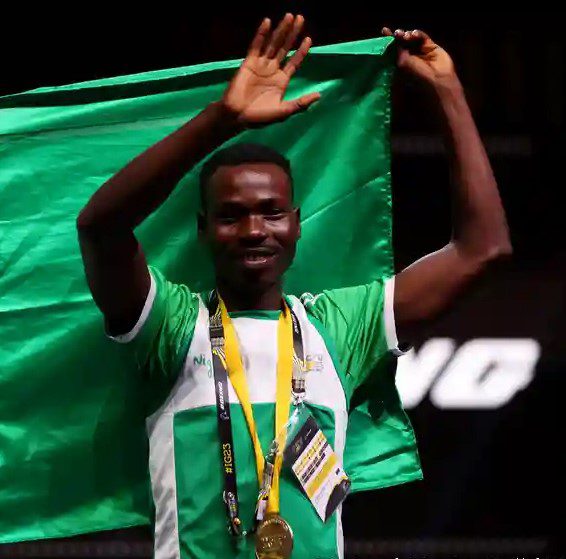In their inaugural participation at the Invictus Games, Nigeria’s athletes, including Peacemaker Azuegbulam, have found a platform to transcend physical and psychological trauma.
Read Also: Rising Tennis Prodigy Seun Ogunsakin: A Journey of Determination, Skill
The Invictus Games, originally met with skepticism for their costliness, provide a unique opportunity for servicemen and women wounded in action to connect and heal.
Dressed in green, Azuegbulam and his Nigerian comrades mingled with fellow participants from across the globe, forging connections and sharing their stories of resilience. The 27-year-old Azuegbulam, a gold medalist in powerlifting, exemplifies the strength of these athletes. His left leg was amputated after sustaining heavy anti-aircraft ammunition injuries during combat in 2020.
Teammate Harrison Amuzie, who competes in various sports including shot put, table tennis, sitting volleyball, and archery, echoes Azuegbulam’s sentiment. His injuries from a 2019 attack left him severely wounded and reliant on crutches. Both athletes credit sports with aiding their physical and mental recovery.
Other News: African Development Bank Announces Investor Calls For Inaugural USD Global Benchmark
Critics have questioned the Games’ substantial cost and relatively small participant count of 500. Nevertheless, for these athletes, the Invictus Games represent a vital opportunity to exchange experiences, support one another, and inspire resilience. As Azuegbulam put it, “We all still have games to play and competitions to compete in.”
The Invictus Games serve as a testament to the indomitable spirit of servicemen and women, fostering a community that transcends borders, languages, and challenges.









